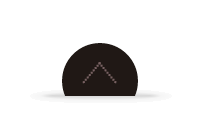Ajouter un extrait
Liste des extraits
“There are two parts to growing as a person—well, no, there aren’t, there’s more, but you can simplify it down—the first is pinpointing problematic areas, the toxic parts, as you said, and cutting them out. You are immensely good at this,” he said, and it sounded a quite genuine compliment, “but it is only one half of the equation. The other part, once you have hollowed out all the offensive parts, is to replace them with healthy, constructive parts. New behaviours; new patterns of thought. Something to nurture those empty spaces back to whole. Because otherwise those holes stay open, and they beg to be filled, and they will collapse on themselves and cause even bigger problems than the things that once lived inside of them. And you, Ronoah? You are singularly lacking in imagination in this respect. You take half the bricks out of a veritable castle of behavioural instinct and you expect it to hold—you never put new ones back in. And I shall tell you why. “There is a difference between action and character. One you change on purpose, but the other, it changes clandestine, without your noticing, until one day you have to run to catch up with where it’s got to. There is a difference between making a mistake, and being a mistake,” he said, tapping Ronoah’s shoulder with one, and then two fingers. “Your problem, Ronoah, quite possibly one of the only problems I can offer that you have not already thought of, is that you are constantly conflating the two. To the everyday eye, character is immovable, immutable—how do you solve a problem when the problem is you? You cannot improve a broken system when the only tool you have with which to do the fixing-up is the system itself. You need new parts, better data—and it just so happens you are discarding a rather sizeable portion of the available data on yourself while you’re at it, which makes your calculations even more erroneous. Because, and get ready for this, it might come as a bit of a shock—because you are not actually broken.”
Afficher en entier


